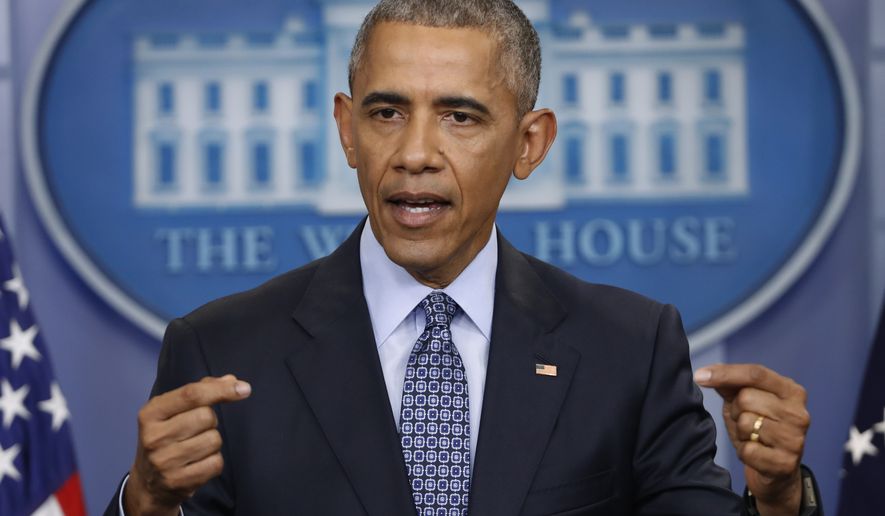Congressional Republicans have formally kicked off their campaign to roll back pieces of former President Obama’s environmental agenda — but progressive activists are mounting fierce resistance to their efforts.
Leaders in both the House and Senate on Monday introduced measures that would overturn the Obama administration’s so-called “Stream Protection Rule,” an Interior Department regulation that adds new restrictions to coal development by requiring companies to monitor and test the quality of any waterways that could be affected before, during or after mining operations.
The rule was rolled out in late December, just weeks before Mr. Obama left office. Republicans are taking aim at the rule through the Congressional Review Act (CRA), legislation that allows Congress to revisit and undo recent rules and executive actions by an administration.
Obama administration regulations dating back to June 2016 are subject to the CRA, and the GOP leadership is wasting little time using the measure.
Senate Majority Leader Mitch McConnell and Sen. Shelley Moore Capito of West Virginia on Monday introduced a resolution to reverse the Stream Protection Rule.
“Put into place by the Obama Administration at the 11th hour, the ’stream buffer’ rule is a harmful regulation that unfairly targets coal jobs,” Mr. McConnell said in a statement. “It is just one example of the former administration’s policies that have jeopardized jobs and taken power away from state and local governments in order to grow the federal bureaucracy. Further, this regulation, like many others of the Obama era does not take into account the negative consequences these policies would have on hardworking Americans and the families they support.”
Republicans in the House introduced a similar measure on Monday and expect that it ultimately will garner bipartisan support when it comes up for a vote, which could take place as soon as Wednesday. Mr. McConnell said the Senate will vote immediately after the House takes action.
Republicans in the House also will use the CRA to undo a Bureau of Land Management rule that limited venting and flaring from oil-and-natural gas drilling sites. Sen. John Barrasso, Wyoming Republican, on Monday also put forth a resolution to eliminate the venting and flaring rule.
“I think each of these is so egregious that there will be Democrats who will be on board with it,” said Rep. Rob Bishop, Utah Republican and chairman of the House Natural Resources Committee.
Some Democrats, such as West Virginia Sen. Joe Manchin III, already have expressed support for reversing the Stream Protection Rule.
But Republicans’ tactic of using the CRA to undo regulations — an approach that will extend beyond environmental policies to rules in a host of other areas — already is under intense fire from progressive groups.
A coalition of 124 organizations including the AFL-CIO, the Center for Biological Diversity, Greenpeace, the National Women’s Law Center and others penned an open letter urging Congress not to use the CRA to kill many of the Obama administration’s achievements.
“The CRA is an unreasonably blunt instrument that threatens to deny consumers tens of billions of dollars in pocketbook savings over the next few decades from rules that were fully vetted and considered over a long period of time,” the letter reads in part. “Voters in this election did not vote for deregulation of Wall Street, more polluted air and water, inaction on climate change, unsafe workplaces, fewer protections against discrimination and unequal pay, more food safety scandals, the gutting of consumer protections, and more.”
On the Stream Protection Rule specifically, critics say the CRA is the right way to go about killing the regulations, especially since they were developed with little input from the coal sector and because the Obama administration did not explain what benefits would result from the measures.
“I think the demise of the stream rule will be a fitting end to a rule that lacked any purpose or need, produces no discernible benefits but carries enormous costs and consequences, not only for coal miners but for countless others whose livelihood depends on a healthy coal mining industry,” said Hal Quinn, president of the National Mining Association.
• Ben Wolfgang can be reached at bwolfgang@washingtontimes.com.




Please read our comment policy before commenting.